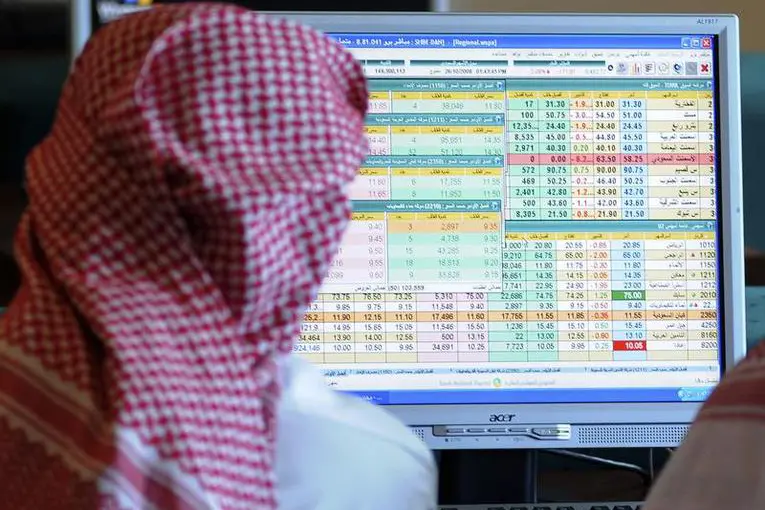PHOTO
* Listed Saudi firms to adopt IFRS by 2017
* IFRS rules could have allowed big swings in valuations
* But regulator directs cost model to be retained initially
* Impact uncertain for large, complex groups
By Celine Aswad
DUBAI, (Reuters) - Saudi Arabia's securities regulator has acted to prevent big swings in the valuations of companies' assets after they shift to new accounting standards next year.
As part of efforts to bring the Saudi stock market into the global investing mainstream, the nation's 175 listed companies are being required to adopt International Financial Reporting Standards (IFRS) from the start of 2017.
For decades, most Saudi firms have used local accounting standards, known as SOCPA, which require assets to be valued at cost when acquired with no subsequent revaluation. IFRS also requires impairments to be assessed quarterly, with an annual valuation of the residual value of fixed assets.
In a statement on Sunday, however, the Capital Market Authority (CMA) directed that for the first three years after IFRS adoption, companies should continue to use the cost model when measuring property, plant, equipment and intangible assets.
During this period, they should disclose estimated changes in the fair value of their assets only in the footnotes of their financial statements, the CMA said.
The regulator added that it had not yet decided whether to continue the cost model after the three-year period ended, or whether to introduce revaluations at that time.
It did not give a reason for its decision, but many changes in values could have been highly controversial because Saudi Arabia lacks liquid markets and valuation expertise in some areas.
A Saudi equity analyst, declining to be named because he was still studying the CMA's decision, said the regulator appeared to be acting to reassure investors and limit volatility.
"This addresses the concern of how companies with heavy assets on their books are expected to be impacted," he said.
BOOKS
Before the CMA's decision, many Saudi companies had been expected to use IFRS to revalue assets that have been on their books for years. In some cases, values might have increased several-fold, reducing firms' reported leverage ratios.
"Revaluation could increase asset values of most companies because of their current cost-based treatment," Al Rajhi Capital said in a research note published before the CMA's decision.
Major beneficiaries could have included real estate-related businesses such as developer Dar Al Arkan, which had a 3.7 billion riyal ($987 million) investment property valuation on its books at the end of last year.
Meanwhile, IFRS could have been negative for some industrial companies by obliging them to record higher depreciation charges for assets. For example, analysts had thought cement companies with decades-old kilns could face higher depreciation expenses.
Analysts said the impact of IFRS on the biggest and most complex companies, such as petrochemicals and metals conglomerate Saudi Basic Industries (SABIC), was difficult to predict.
"SABIC has a more complicated corporate structure than other listed shares, so we believe the IFRS changes are a short-term concern," NCB Capital's Iyad Ghulam said.
Only banks and insurers currently follow IFRS in Saudi Arabia, while a small number of listed companies - including telecoms group Etihad Etisalat (Mobily) - have partially converted.
Some companies are making the change early. SABIC, for instance, has said it expects to publish earnings in the IFRS format by the fourth quarter of this year.
Others could miss the deadline for conversion as they contend with issues such as revenue recognition, cost structures and identification of employee benefit schemes, though the CMA has not said how it will deal with any stragglers. (Editing by Andrew Torchia and Tom Heneghan
© Reuters 2016





















